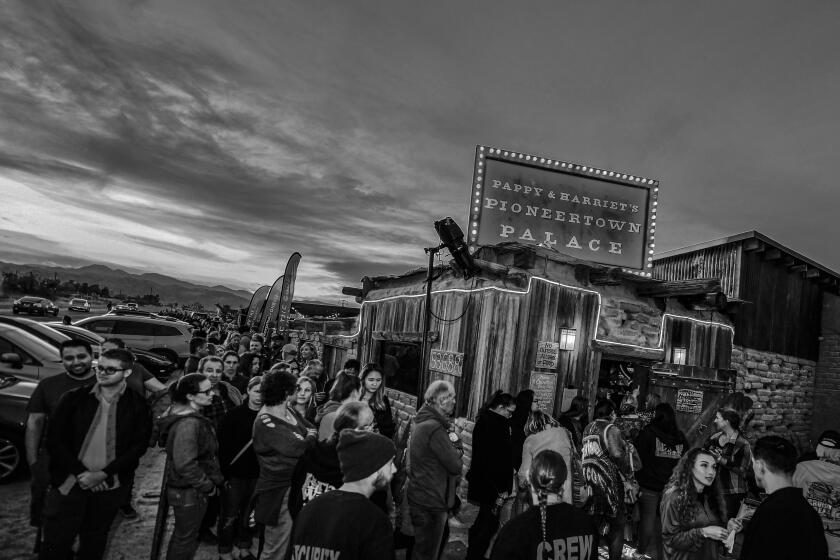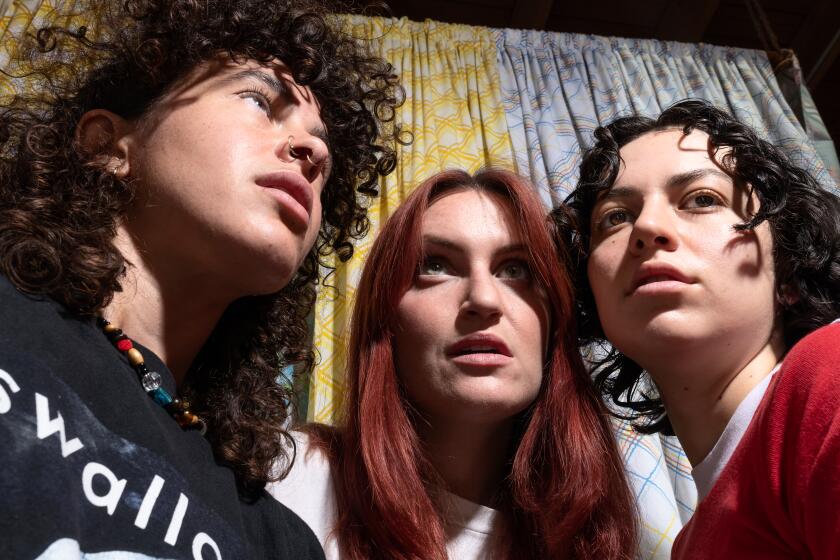- Share via
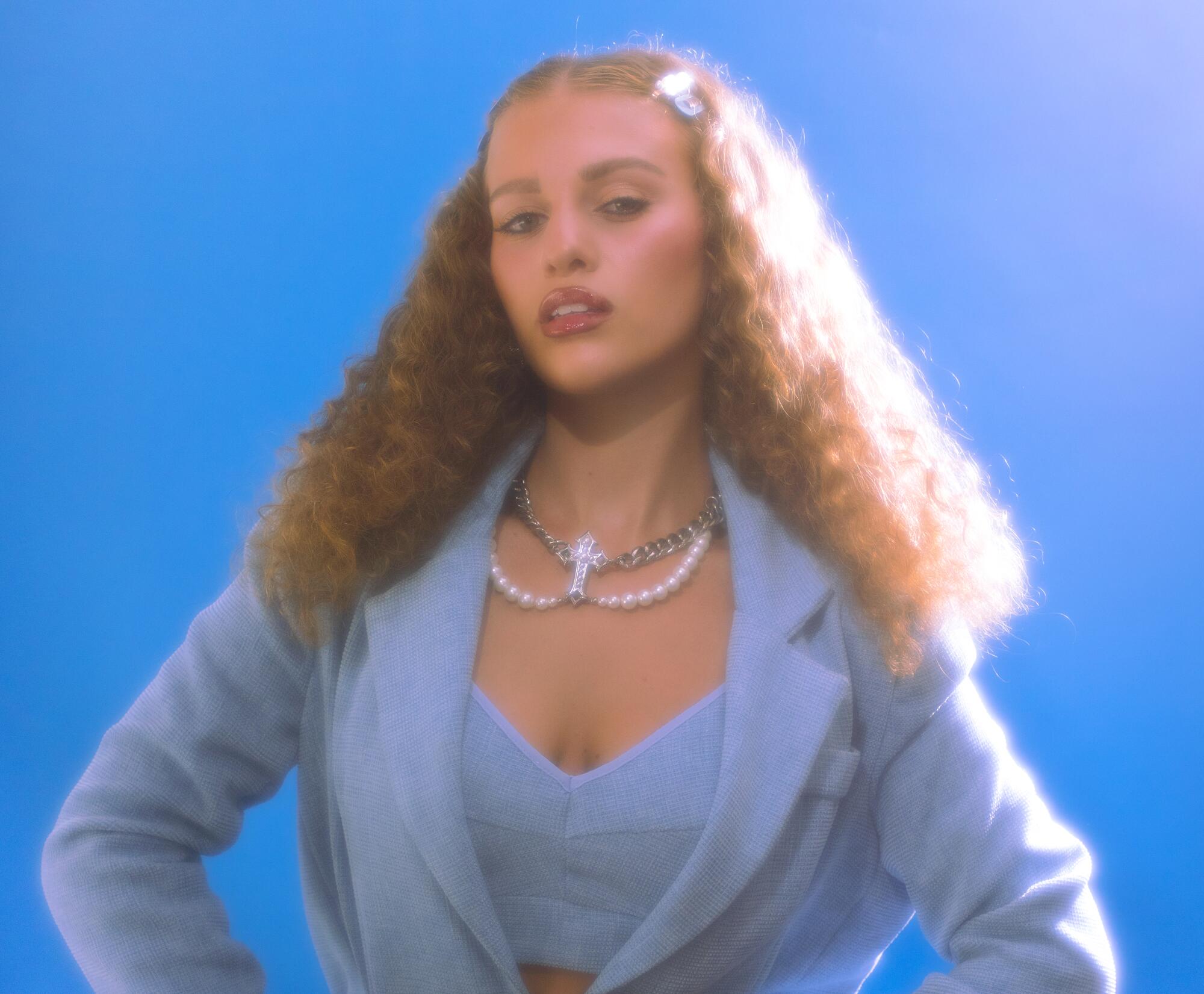
It’s summer in Encino, and Elyanna — a 20-year-old Palestinian Chilean pop singer from Tarzana by way of Jesus’ hometown — has pulled up to a wilted park in a Jeep Cherokee. She sits at a picnic table by a lake, a low mountain range behind her, with Feras, her brother/co-songwriter/chauffeur. Around her are gaggles of Canadian geese that, at least per the warnings of a nearby good Samaritan, can get very aggressive. If things go according to plan, this kind of regular-folks hangout will soon be a relic for Elyanna. Because if things go according to plan, soon Elyanna is going to be very famous.
From Timbaland to Sting to the next rapper to say inshallah, Arab culture has been a persistent influence on American music. But songs actually in Arabic have never been a presence on the charts. The 42-year-old power manager Wassim “Sal” Slaiby — who helped usher the Weeknd to superstardom and who now manages a bevy of streaming stars including Doja Cat and Swedish House Mafia — believes he can change that. In the spring of 2021, under the banner of Universal Music Group and Republic Records, Slaiby, who is from Lebanon by way of Canada, launched Universal Arabic Music. With his facility in the Arab internet as his secret weapon, he’s positioning himself as a Svengali of Arabic pop.
And Elyanna, UAM’s marquee act, could be his trailblazing protégé. She’s not a scrappy independent artist, or a protest poet, or anything else you might think when you think “Palestinian music.” She’s something much rarer: a young Palestinian artist with the clear backing of the American music industry. She wants to be a pop star in the mold of Rihanna or Ariana Grande. Her 2022 single “Ghareeb Alay,” a slinky heartbreak ballad, has more than 35 million YouTube views. Its only English is the phrase “I am a superstar.”
“Starlet seeks spotlight” is the kind of well-worn trope this town is all about. But there’s something a little more complicated going on here: If she broke through, Elyanna would be a rare Palestinian figure in mainstream American life who isn’t being asked to voice suffering or tragedy. Can a major-label star also represent progress?

In press photos Elyanna, born Elian Marjieh, has a mature dead-eyed gaze. In person, in a patterned skirt and a perma-grin, she looks even younger than 20. She and Feras have just come back from Tunis, where Elyanna performed with her “Ghareeb Alay” collaborator Balti in front of 25,000 people, and where she was recognized on the streets for the first time.
“Bro,” Feras interjects softly. “She was, like, literally famous.”
Five years ago, the whole family — there’s Mom, Dad and two sisters too — moved to California from the Israeli-Arab city of Nazareth. (She’s part Chilean, on her father’s side). As is common in Arab families they all still live at home, just a few minutes drive away. They settled first in San Diego where Elyanna did her best to simultaneously assimilate — at one Torrey Pines High football game, she sang the national anthem — and hustle. Her break came quickly, from an Instagram direct message to the songwriter Nasri.
In 2014, while fronting the Canadian band Magic!, Nasri Atweh had an international smash with “Rude,” the kind of cloyingly effective earworm only a true craftsman could have constructed. For more than a decade, he’s written songs for arena-fillers such as Usher, Halsey and John Legend. He’s one of those sneakily influential operators that make the music industry work.
By his own estimation, Nasri gets — and duly ignores — three or four unsolicited messages a day from unsigned singers. But in 2018, when Elyanna messaged him, he noticed, first, her “piercing green eyes” and then her voice. There was another appealing element: Nasri’s own parents had emigrated from Nazareth to Canada. Later, they’d find out their families were friends; there was even a chance they were distantly related.
They met in a studio in L.A., with Elyanna’s whole immediate family on site. “She was the rawest talent I’d ever recorded,” he says, “and I’ve recorded everybody.” He had an impulsive suggestion: sing in Arabic. Elyanna left the studio crying. Singing in Arabic, she says, was never part of her stardom plan. But soon, she felt its counterintuitive appeal. “It’s in me,” she says now. It’s who I am. I’m an Arabic girl. I’m Palestinian.”
Another fortuitous incident: Nasri happened to be managed by Slaiby and connected the two. As Slaiby now tells the story, it was partially hearing Elyanna sing in Arabic in Nasri’s studio that inspired him to pursue the idea of UAM. “Strictly the Arabic lane, it wasn’t something I was doing. But when she started singing it was an inspiration, a motivation. It was like, ‘Oh, my God, I love this. What’s your name? Let’s do this together!’”
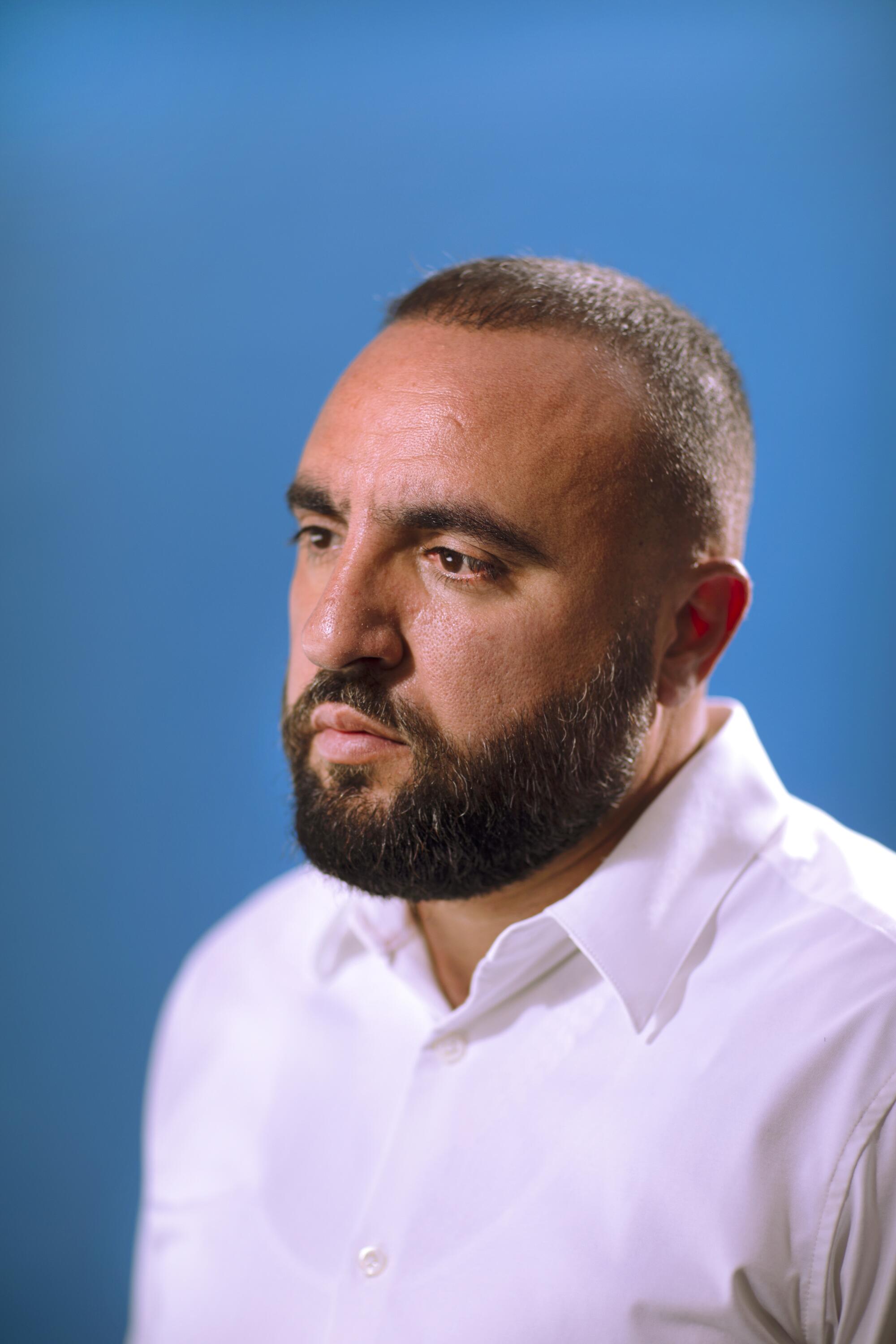
Elyanna’s dad had actually seen Slaiby on TV when the family was still in Nazareth and told her then, “‘There’s this Lebanese manager who manages the Weeknd and one day, inshallah, he’ll be your manager.’” Ever since, she says beaming, that was her dream. “I guess I manifested it,” she says. “Manifestation is reeeeeaaalll.”
So the whole family moved again, to the Valley. Since, she’s put out two EPs, “Elyanna 1” and “Elyanna 2,” and collaborated with singers from Jordan, Lebanon and Tunisia. In L.A., her biggest show to date was her album release party at the Peppermint Club, which fits a few hundred people. But her success in Tunis suggests Elyanna could similarly tackle Arab world countries, one-by-one. Which isn’t to say, she’s quick to add, that her music is only for Arab speakers. “Because I’m singing in Arabic, it doesn’t mean it’s not going to be international, you know what I mean?”
A bitter dispute over ownership of Pioneertown roadhouse Pappy & Harriet’s has stirred fears among locals about the gentrification of their community.
When talking about UAM, his baby, Slaiby is all about vibes, heart, emotion and all other manner of expected generalities. If he cornered you at a party to talk about his grand industry plans, you might think he was bluffing. When pitching UAM to Universal, Slaiby says, he didn’t quantify the size or scope of the consumer base for Arabic music. “I don’t think any of us had [an] imagination of numbers like that,” he says. “It was pure passion and believing. It was me understanding the Arabic market. I saw this wave coming for a long time. I was doing business in Egypt, Saudi, Dubai, Abu Dhabi, Qatar. It’s huge!” Universal, “they saw the vision, they said let’s go.”
So he built out the UAM roster, archetype by archetype. Elyanna is the pop diva, of course. The rapper $kinny, originally from Saudi Arabia, works in the mold of a flashy L.A. rapper. Jordan’s Issam Alnajjar is the acoustic crooner and a genuine global presence. After going big on TikTok with the Jason Mraz-y “Hadal Ahbek,” his debut album “Baree?” netted more than 2 billion streams worldwide.
Josh Kun, a professor at USC with a focus on cross-cultural communications, sees Elyanna as part of a cusp of potential change, one fueled by major corporate platforms like the Spotify playlist Arab X, which highlights collaborations between Arab and non-Arab artists, or by linguistically-blended hits like “Soldi,” by the Egyptian Italian artist Mahmood, Italy’s entry in Eurovision 2019. Arabic musicians have “always been there,” says Kun, “but the mainstream music world has been slow and — depending on the political moment and phobias around the Middle East — resistant to acknowledging it.”
Thanks in part to the global starmaking power of TikTok, YouTube and Spotify, Spanish-language artists like Bad Bunny, J. Balvin, and Rosalía are currently dominant in the culture. Post-BTS, K-pop continues churning out new stateside successes. Is Slaiby’s big bet sound? Are American audiences ready for more non-English bangers?
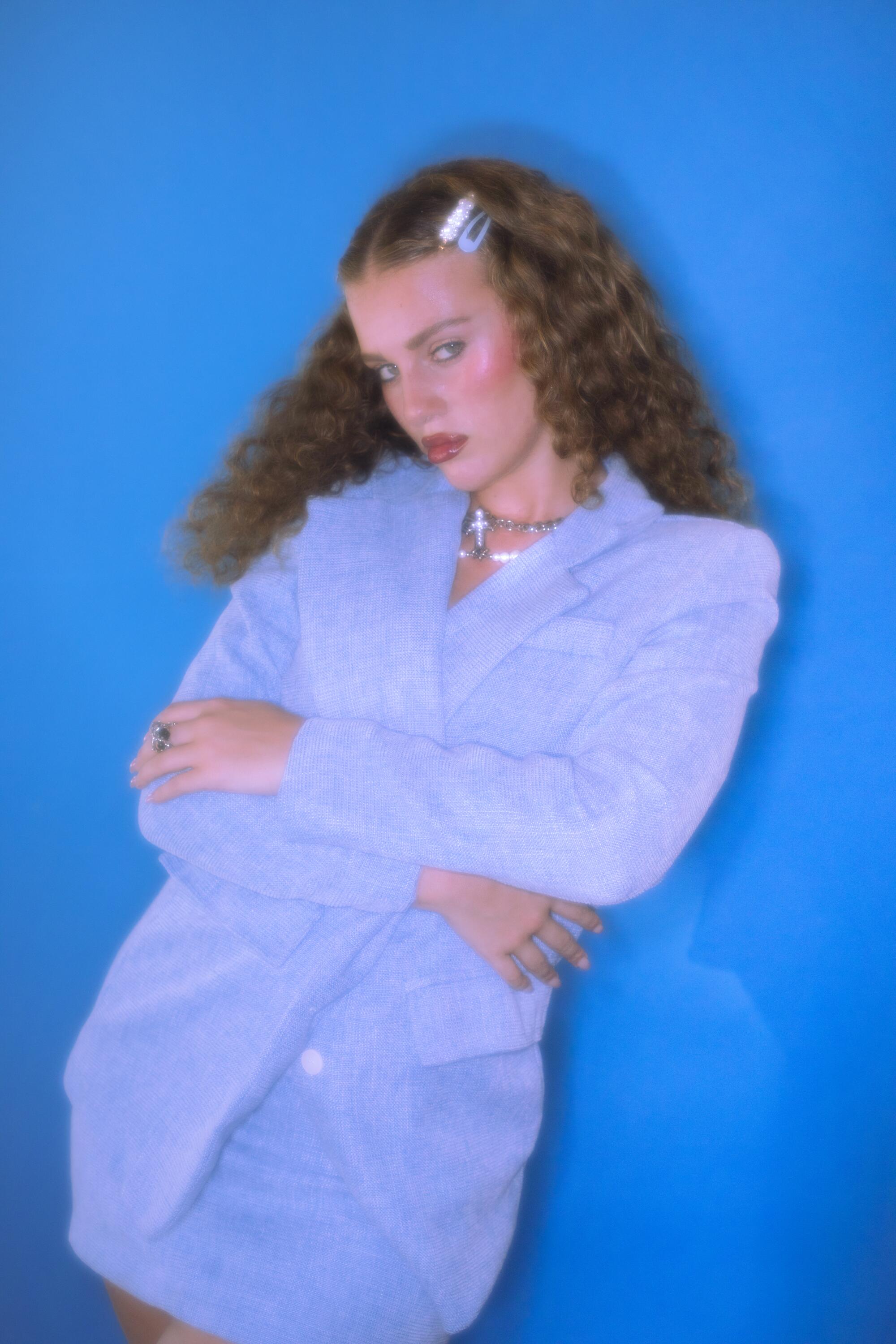
On August 4, 2020, the port of Beirut suffered a massive explosion caused by thousands of tons of improperly stored ammonium nitrate. Hundreds were killed; a state of emergency was declared. Popular dissent focused on the self-dealing of the ruling government, which had been a target of street protests for months. Afterward, Slaiby donated $250,000 to relief efforts while helping raise nearly a million more, all while speaking the careful nonpartisan language of international philanthropy. “I suck at politics,” he says now. “I don’t get it. I just try to [fight] fire with water.”
In interviews, the story of Slaiby’s path to North America is told in classically dramatic fashion. One example, from a 2021 Music Business Worldwide interview: “Aged just 16 years old, Slaiby was escaping his home country of Lebanon, then in the grip of a violent civil war… First, Slaiby boarded a boat to Cyprus. Then he grabbed a one way plane to Germany, and then another to his ultimate destination — Canada.” When Slaiby left, in 1996, the war was over and Lebanon was in fact dealing with the turmoil that followed; Slaiby traveled to Canada on a visa; and, while arduous, the Cyprus-Germany-Canada route also seems like a cheaper option than flying direct. His self-made story is tantalizing enough but Western media can’t resist aggrandizing the hardship.
It’s an interesting contrast to Elyanna, who is now in a position to represent Palestinian affluence. Nazareth is an Israeli city with a large Arabic population (both Muslim and, like Elyanna’s family, Christian) many of them descended from families who managed to survive expulsion during the 1948 Arab-Israeli War. Unlike Palestinians in the occupied territories of Gaza and the West Bank, Arabs in Nazareth have Israeli passports, and, relatively, greater freedom to travel in and out of the country.
Elyanna comes from the kind of Palestinian family we don’t usually see in the media: one that had the means both to navigate the American visa system and to land their kid in a great San Diego high school. At the park in Encino, Elyanna’s brother Feras speaks as passionately about his sister’s career as he does about completing his finance degree at San Diego State so he can follow his father into the commercial real estate business. Clearly, there are multiple versions of the American dream being pursued here.
Slaiby imagines UAM as a project to “show the right side of our culture. The side that sometimes doesn’t get to be seen or shown. You ever come to an Arab house, you’re gonna end up eating for hours. You might end up dancing. We love people. We love life!”
Elyanna ably echoes that UAM party line. “I don’t like politics at all,” she says. “I don’t like those things where it’s toxic and weird. I love to represent my culture in a beautiful way. When people think of it, I want them to think of the beautiful things. Belly dancing, our accents, the tatreez (Palestinian embroidery). This is really dope.”
The L.A. band overcame intra-band romantic entanglements and being dropped by its label to make one of the summer’s breakout albums.
You may know that old-school crooner Paul Anka is Lebanese, or that New York rapper French Montana is Moroccan. (Both Anka and Montana, by the way, are managed by Slaiby.) You probably didn’t know the dude who sang “Rude” was Palestinian until reading this story. DJ Khaled is Palestinian too, but if he’s representing anything it’s Dade County. Many of the Arabic artists who have found success in the U.S. have, either consciously or otherwise, made their heritage a secondary aspect of their personas.
Danny Hajjar — a Lebanese American music writer and DJ who covers Arab culture on his newsletter, Sa’alouni El Nas — believes Elyanna can push Arab pop forward. “This is somebody who is performing in Arabic in the style of songs that I would listen to in English,” he says, audibly awed. “Arab pop has always been confined to the region or to diaspora communities, for obvious reasons.” But Elyanna, Hajjar hopes, can change that. “If you like Adele, there’s no reason not to like Elyanna. She’s just making dope music.”
Whatever UAM is, it’s something new: explicitly Arab pop culture, explicitly apolitical, designed with the U.S. in mind. One recent UAM release is “Sah Sah,” a collaboration between the veteran Lebanese star Nancy Ajram and festival mainstay Marshmello. The video features the DJ, with his trademark white bucket on his head, wailing away on the qanun, a traditional Arab string instrument. You might find an image like that a little goofy, a little forced, a little cursed. But good luck getting it out of your head.

It’s the day after the Encino park hang and Elyanna is at the headquarters of Slaiby’s management company, tucked away in an aggressively verdant part of L.A. It’s decorated with superhero statuettes and massive exterior murals depicting Slaiby’s artists. One piece of the art has Wolverine unfurling his adamantium claws next to an office building labeled UAM.
A photographer and his assistant are setting up in the garage, which is decorated with industry awards and stocked with bottles of Doja Cat-branded LIFEWTR. An employee asks them to sign NDAs, which they politely rebuff. Elyanna poses for shots with her sister just off camera, giddily taking iPhone pics. Someone pulls up on an extremely cool Batman-esque quad-motorcycle. Fifteen minutes later, someone else heads to their car and mutters “Jesus Christ.” The motorcycle is blocking their sensible Volkswagen.
Elyanna is now working on her full-length debut, doing sessions in professional studios with Nasri but also writing at home in Tarzana, in the living room, with Feras, just like when she first got started in Nazareth. Her mother actually writes a lot of her lyrics. Mom had no prior experience writing songs but her own father, Elyanna’s grandfather, was a locally renowned poet and singer best known for his performances in zajal, a dueling poetry genre often performed at Palestinian weddings.
For Nasri, working with Elyanna in Arabic has already resonated in one very particular way. “I did a lot of Justin Bieber stuff,” he says. “My mother always used to ask, ‘How’s Justin, how’s Justin.’ Now she only asks about Elyanna.” But any feel-good factor is still a byproduct of the process. Ultimately, to operate on this level, you have to move cynically. The question is simple and eternal: Will this be a hit? “I’m in the business of writing and collaborating with stars,” Nasri says. “I believe that she’s a star.”

Finally, Slaiby comes out to get his photo taken with Elyanna. A publicist genially hurries along the process: “Yalla!” In person, Slaiby — his hair cropped high, gray hairs flecking his beard — is all business. He gingerly dabs sweat off his forehead with a towel and respectfully shakes everyone’s hand. The photographer shifts Elyanna and Slaiby into different poses, and Elyanna is more than game, calling out, “Let’s see the vibes!” But after almost every photo, Slaiby attempts to convince the photographer that they’ve got the shot until finally the photographer can’t help but acquiesce.
Slaiby and Elyanna crowd around to look at the screen on the photographer’s digital camera. It’s a perfectly fine photo, taken under duress. But with Elyanna by his side, Slaiby is here to fashion their own narrative. He takes a quick look and provides an immediate verdict: “This is iconic.”
More to Read
The biggest entertainment stories
Get our big stories about Hollywood, film, television, music, arts, culture and more right in your inbox as soon as they publish.
You may occasionally receive promotional content from the Los Angeles Times.
